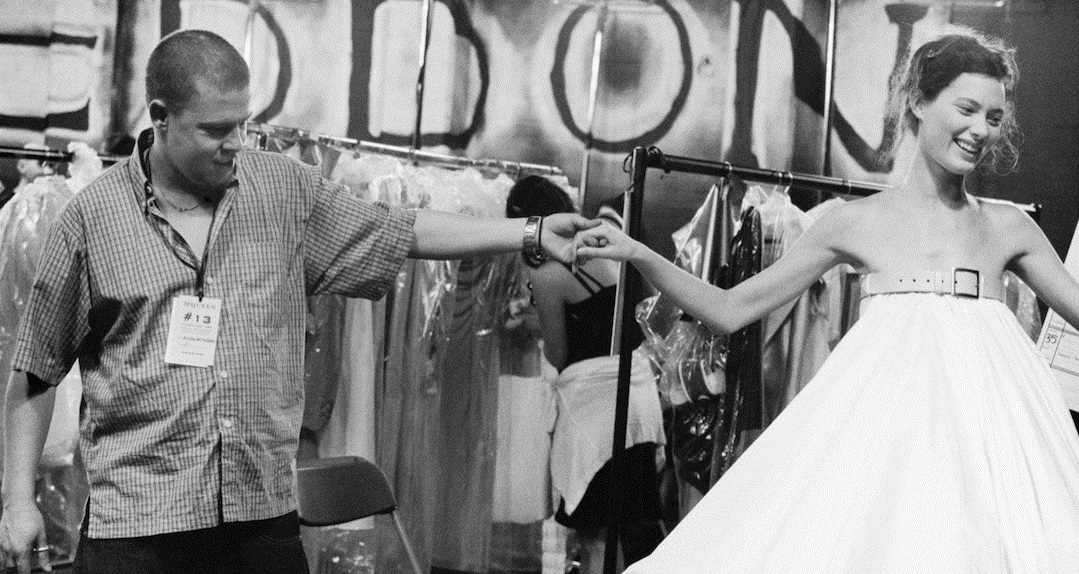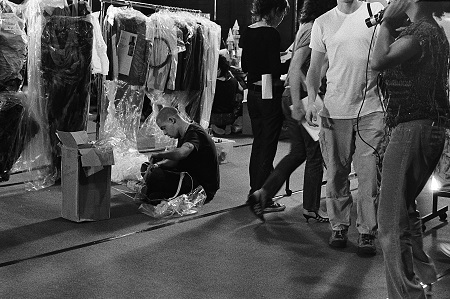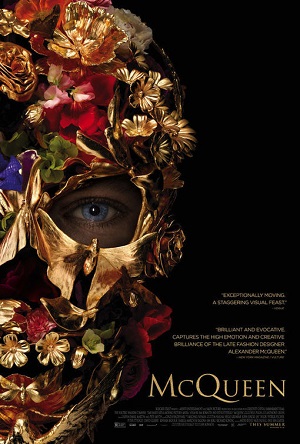
a SIFF 2018 review
Energetically Alive McQueen a Haute Couture Documentary Sensation
Born Lee Alexander McQueen, I can’t say I knew a whole lot of the late British fashion designer before watching director Ian Bonhôte and co-director Peter Ettedgui’s fascinating documentary McQueen other than I liked his clothes and that he had a reputation for being a little bit of a wild man. His upbringing? How he got his start? What led him to become a fashion designer? The significance of the skull motif that was his trademark? The demons he was trying to suppress before he tragically committed suicide in 2010? I can’t really talk about any of that. It’s just not something I have any knowledge of or, if I’m being honest, all that much interest in learning about.
I couldn’t have been more wrong. Bonhôte and Ettedgui’s documentary is superb, their film overflowing in insight, human emotion and edifying moments that are universal in their intimately visceral appeal. It showcases an extraordinary and imaginative talent battling against the darkness lurking within his psyche while at the same time pushing the boundary of what the high fashion world was ready to endure. Through the eyes of those who knew him best and after being given access to rare recordings and home-video footage shot by the designer, the directors manufacture an accessible portrait that is oftentimes haunting in its subjective specificity. It’s sensational stuff, and even for someone like me who barely knew what all the fuss was about this is an essential piece of filmmaking excellence deserving of a standing ovation.
Split into five chapters with animated title cards based on evolving variations of that signature skull, the film dives right into McQueen’s creative process almost immediately, dispensing with his childhood years in like the first five to ten minutes. It takes no time at all before we’re seeing the designer as an early protégé of fashion editor Isabella Blow (who was the one who urged him to drop the “Lee” and go by “Alexander”) before moving on to work as a creative director for Givenchy. Not so much longer after that we see McQueen launching his own line and staging signature fashion shows with purposefully provocative titles like “Jack The Ripper Stalks His Victims” and “The Highland Rape.” Through it all we also are granted access into the designer’s working progress and friends and family members discuss openly all of the many things that helped propel his imagination to keep creating new and even more astonishing wonders.
But Bonhôte and Ettedgui makes sure and examine those demons as well, most notably the nightmares he transformed into fodder for his spectacular runways shows, all of which were more like avant-garde theatre pieces than they were haute couture extravaganzas. At the same time, it’s odd that the movie never actually, at least as far as I can remember, never utters the word “suicide.” Not when talking about Blow’s death and the effect it had upon McQueen, and not when detailing the events that led to the designer taking his own life in February of 2010. While the directors do not shy away from their subject’s drug abuse or his up and down relationships with both lovers and fellow collaborators, they still seem moderately reticent of going too far down the rabbit hole that ended with him hanging himself and leaving a note that asked whoever found him to look after his dogs.
Still, this is a masterful motion picture, and Bonhôte and Ettedgui deserve a great deal of praise. Utilizing Michael Nyman’s (The Piano, Gattaca) magnificent score with pinpoint precision, the filmmakers infuse their film with an urgent vibrancy that’s positively transfixing, all the varying pieces composited together with energetic grace thanks to this smoothly confident hand of editor Cinzia Baldessari. In the end, McQueen is the kind of documentary I might not have had much in the way of interest in before watching but after giving it a look now feel it is nothing short of sensational. Watch it at once.
– Review reprinted courtesy of the SGN in Seattle
Film Rating: 3½ (out of 4)







